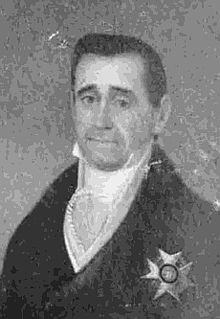This article may require cleanup to meet Wikipedia's quality standards. The specific problem is: dates don't conform to WP:DATESNO.(August 2016) |
| Governor of Venezuela Province | |
|---|---|
 | |
 Flag of Spain | |
| Style | Governor |
| Status | |
| Inaugural holder | Juan Martínez de Ampiés |
| Formation | 1527 |
The following is a list of governors of Venezuela Province , one of the Provinces of the Spanish Empire.

